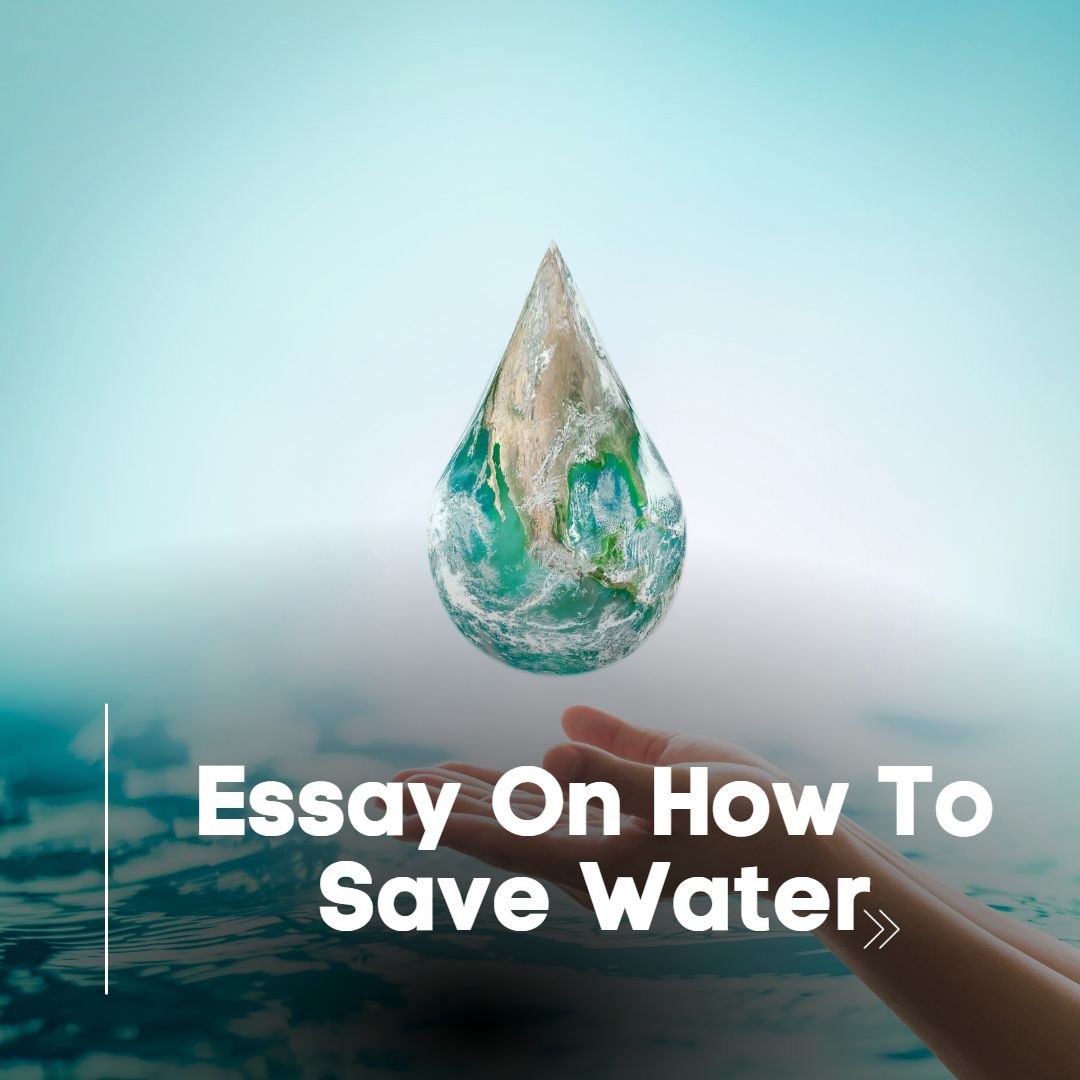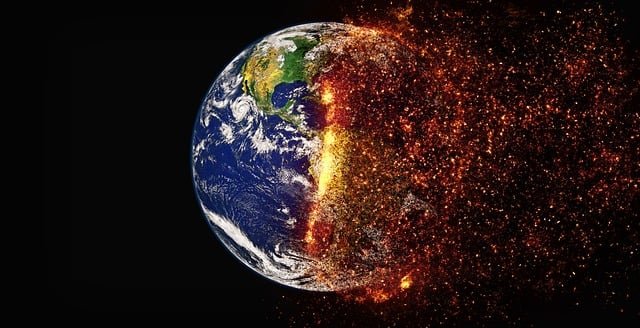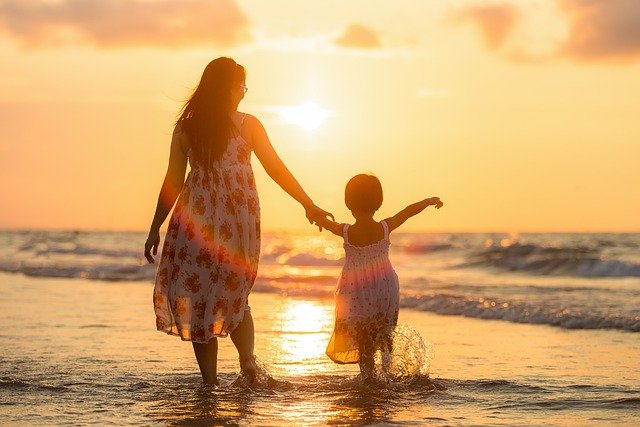Table of Contents
Water is a vital resource that is essential for the survival of all living beings on Earth. It serves various purposes such as drinking, cooking, cleaning, and irrigation. However, due to overconsumption and pollution, access to clean water has become a major concern in many parts of the world. Saving water is a crucial step towards the prevention of water scarcity and ensuring that everyone has access to this valuable resource.
Saving water is important for the environment because it helps to conserve natural resources and reduce energy consumption. By reducing our water usage, we can help to prevent the depletion of aquifers and groundwater reserves. This can help to maintain healthy ecosystems by preserving habitats for wildlife and plants.
Saving water is good for the environment because it helps to reduce greenhouse gas emissions. Water treatment plants require a significant amount of energy to operate, which contributes to climate change. By using less water, we can reduce the energy required for treatment and lower our carbon footprint.
Saving water helps the environment by reducing pollution levels in rivers and lakes. When we use too much water or pollute it with chemicals, it can harm aquatic life and make it unsafe for human consumption. By conserving water and reducing pollution levels, we can protect our natural resources from damage.
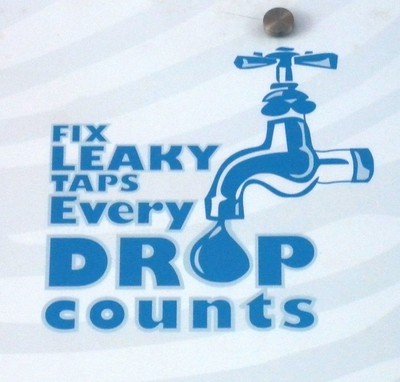
You should save water because it’s an essential component of life sustainability. Without access to clean drinking water, humans cannot survive more than a few days. Conserving this precious resource ensures that future generations will have access to safe drinking water.
Saving water helps the environment by preventing soil erosion caused by excessive watering or irrigation practices. When soil erodes, nutrients are lost along with topsoil which reduces agricultural productivity leading farmers into poverty.
Use any of the below sections to include in your Essay On How To Save Water.
Essay On How To Save Water: Tips and Techniques for Conserving Water at Home
Fix Any Leaks in Your Home to Conserve Water
One of the easiest ways to conserve water at home is by fixing any leaks. A small leak may not seem like a big deal, but over time it can add up and waste a significant amount of water. To check for leaks, turn off all faucets and appliances that use water and then take a look at your water meter. If the meter is still running, you likely have a leak somewhere in your home.
To fix leaks, start by checking all faucets and pipes for visible signs of damage or wear. Replace any worn-out washers or gaskets as needed. For more complex leaks, such as those in pipes hidden behind walls or under floors, it’s best to call in a professional plumber.
Install Low-Flow Showerheads and Faucets to Reduce Water Usage
Another effective way to conserve water at home is by installing low-flow showerheads and faucets. These fixtures are designed to reduce the amount of water used without sacrificing performance. In fact, many low-flow showerheads and faucets can provide the same pressure and flow rate as traditional fixtures while using significantly less water.
When shopping for low-flow fixtures, look for models with the WaterSense label. This label indicates that the fixture has been certified by the Environmental Protection Agency (EPA) as being both efficient and effective.
Use any of the sections to include in your Essay On How To Save Water.
Use a Broom Instead of a Hose to Clean Outdoor Areas
Cleaning outdoor areas such as driveways and patios can be another source of unnecessary water usage. Instead of using a hose to clean these surfaces, try using a broom instead. This method not only saves water but also helps prevent pollutants from washing into storm drains.
Only Run the Dishwasher and Washing Machine When They Are Full
Dishwashers and washing machines are two major sources of household water usage. To conserve water, only run these appliances when they are full. This not only saves on water usage but also on energy costs since you’ll be running the appliances less frequently.
In addition to these tips, there are many other ways to conserve water at home. For example, consider installing a rain barrel to collect and reuse rainwater for watering plants and gardens. You can also reduce your water usage by taking shorter showers, turning off the faucet while brushing your teeth, and using a pool cover to reduce evaporation.
By following these simple tips and techniques, you can help conserve water at home and do your part to protect this valuable resource.
Use any of these sections to include in your Essay On How To Save Water.
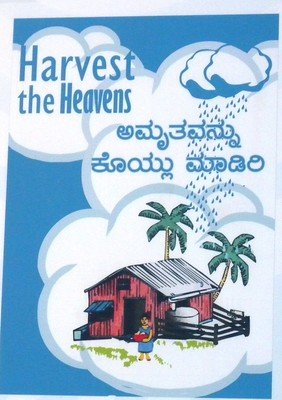
Essay On How To Save Water: Fixing Leaks and Using Efficient Appliances
Fixing leaks and using efficient appliances are two simple yet effective ways to save water. By doing so, we can conserve this precious resource and reduce our water bills at the same time. In this section, we will discuss some practical tips on how to fix leaks and use efficient appliances.
Fixing Leaks
Did you know that fixing leaks can save up to 10,000 litres of water per year? Even a small leak can waste a significant amount of water over time. For instance, a dripping faucet can waste up to 20 litres of water per day, which is equivalent to 7,300 litres per year. Therefore, it is crucial to check for leaks regularly and fix them as soon as possible.
One way to prevent leaks is by checking and replacing faulty parts in appliances such as toilets and washing machines. These parts may wear out over time due to regular use or poor maintenance. By replacing them with new ones, you can prevent leaks from occurring in the first place.
Using Efficient Appliances
Another way to save water is by using efficient appliances such as washing machines and toilets. High-efficiency washing machines use less water than traditional models while still providing excellent cleaning performance. According to the Environmental Protection Agency (EPA), using an efficient washing machine can save up to 15 litres of water per load.
Similarly, high-efficiency toilets use only 1.28 litres of water per flush compared to older models that use up to 7 litres. This means that you can save thousands of litres of water every year by upgrading your toilet.
Moreover, many parts of appliances such as showerheads and faucets can be replaced with low-flow options to conserve water without sacrificing performance or comfort. For example, installing a low-flow showerhead reduces the amount of water used during showers without affecting the pressure or quality of the stream.
Use any of the sections to include in your Essay On How To Save Water.
Essay On How To Save Water: Reducing Outdoor Water Use
Using a Broom Instead of a Hose to Clean Outdoor Areas
Saving water is not only good for the environment, but it can also help reduce your water bill. One way to save water outdoors is by using a broom instead of a hose to clean outdoor areas such as driveways and patios. Did you know that using a hose for just 10 minutes can waste up to 80 litres of water? By using a broom instead, you can save that much water each time.
Not only does using a broom conserve water, but it’s also quicker and easier than using a hose. Plus, it helps prevent pollutants from washing down storm drains and into our rivers and oceans. So next time you need to clean your outdoor spaces, grab a broom instead of the hose.
Students can differentiate from others and gain grades by including these sections in Essay On How To Save Water.
Installing Rain Barrels to Collect Rainwater
Another great way to save water outdoors is by installing rain barrels. These barrels collect rainwater from your roof gutters and store it for later use in watering plants and gardens. By doing so, you can reduce your reliance on municipal or well water sources.
Rain barrels are easy to install and come in various sizes depending on your needs. They also help prevent erosion caused by excess runoff during heavy rainfall events. Not only do they save you money on your water bill, but they also provide an eco-friendly solution for watering plants.
Watering Your Lawn Only When Necessary
Watering your lawn is one of the most significant ways we use water outdoors. However, overwatering can lead to the wastage of this precious resource. To avoid this problem, make sure you’re only watering when necessary.
A good rule of thumb is to check if your lawn needs watering by walking across it; if there are footprints left behind after walking across it, then it’s time to give it some hydration. Also, make sure you’re not watering during the hottest part of the day when evaporation rates are at their highest.
Using Drought-Resistant Plants in Your Garden
Another way to save water outdoors is by using drought-resistant plants in your garden. These plants require less water than other plants and can survive during periods of drought.
Some examples of drought-resistant plants include succulents, lavender, and rosemary. Not only do these plants conserve water, but they also add beauty and texture to your outdoor space.
Use any of the below sections to include in your Essay On How To Save Water.
Adjusting Your Sprinkler System
If you have a sprinkler system installed, make sure it’s adjusted correctly to avoid watering non-lawn areas such as sidewalks and driveways. This not only wastes water but can also damage these surfaces over time.
Also, consider upgrading to a smart sprinkler system that adjusts the watering schedule based on weather conditions and soil moisture levels. By doing so, you’ll ensure that your lawn is getting the right amount of hydration without wasting any excess water.
Fixing Leaks or Broken Sprinkler Heads Promptly
Finally, make sure to fix any leaks or broken sprinkler heads promptly. Even small leaks can waste significant amounts of water over time. Regularly check your sprinkler system for any signs of damage or leaks and address them immediately.
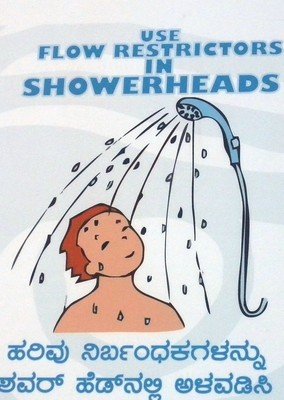
Recycling and Reusing Water For Essay On How To Save Water
Rainwater harvesting is an effective way to reduce water wastage and increase the availability of clean water for various purposes. By collecting rainwater, we can reduce our dependence on potable water sources and preserve groundwater resources.
Rainwater harvesting involves collecting rainwater from rooftops, roads, and other surfaces and storing it for later use. This process not only helps to conserve water but also reduces the risk of flooding in low-lying areas. It provides a source of clean water that can be used for drinking or other household purposes.
Reusing rainwater for non-potable purposes such as irrigation, cleaning, and flushing toilets can significantly reduce the amount of freshwater we use on a daily basis. This not only conserves water but also reduces the amount of energy needed to treat and transport wastewater. By using recycled water instead of fresh water for these purposes, we can also help preserve our natural resources and protect our environment.
Recycling water from washing machines, dishwashers, and other sources is another effective way to conserve water and reduce pollution in our water bodies. This process involves treating wastewater so that it can be reused for non-potable purposes such as irrigation or industrial processes.
Proper disposal of waste materials such as chemicals, oils, and plastics is crucial to prevent them from contaminating our water supply and causing harm to aquatic life. By disposing of these materials properly through recycling or hazardous waste disposal programs, we can help ensure that our water remains safe for both human consumption and aquatic life.
Use any of the below sections to include in your Essay On How To Save Water.
The Impact of Water Scarcity on the Environment and Society
Water scarcity is a growing concern worldwide, with millions of people facing shortages of clean and safe water. The impact of water scarcity extends beyond individuals and communities, affecting the environment and society as a whole. In this section, we will explore the impact of water scarcity on the environment and society.
Lack of Clean Water
One of the most significant impacts of water scarcity is a lack of clean water. When there is not enough freshwater available, people often turn to unsafe sources for drinking, cooking, and bathing. This can lead to serious health problems such as diarrhoea, cholera, and typhoid fever. Animals also suffer from a lack of clean water, which can cause dehydration or illness.
Pollution
Pollution is another major contributor to clean water scarcity. Industrial waste, agricultural runoff, and untreated sewage are just some examples of pollutants that contaminate existing water sources. Pollution makes it difficult or impossible to use these sources for drinking or irrigation purposes. It also harms aquatic ecosystems by killing fish and other organisms that rely on clean water.
Use any of the above sections to include in your Essay On How To Save Water.
Ecosystems
Water scarcity affects entire ecosystems by disrupting their natural balance. Plants and animals require adequate amounts of freshwater to survive and thrive in their habitats. When there is not enough water available, plants may die off or become stunted in growth. This can have cascading effects on other species that rely on those plants for food or shelter.
Society
The impact of water scarcity on society can be severe. In some cases, conflicts over access to limited resources can lead to violence between communities or even nations. Water shortages can also force people to migrate from their homes in search of better living conditions elsewhere.
Economic Impacts
Water scarcity has significant economic impacts as well. Industries such as agriculture and manufacturing rely heavily on freshwater supplies for production processes. When there is not enough water available for these industries to operate efficiently, it can lead to reduced productivity or even closure.
Use any of the sections to include in your Essay On How To Save Water.
Addressing the Issue
Addressing the issue of water scarcity requires a multi-faceted approach. Conservation efforts such as reducing water usage and reusing wastewater can help to stretch existing resources further. Investment in infrastructure such as dams, pipelines, and treatment plants can also increase access to clean water. Policies that promote sustainable use of water resources are essential to ensure that future generations have access to this valuable resource.
Depletion of Aquifers and Groundwater For Essay On How To Save Water
Groundwater depletion is a serious issue that affects many regions around the world. Overuse of groundwater resources leads to a shortage of water supply, which can have devastating effects on communities and ecosystems.
Contamination of groundwater sources due to human activities such as industrial waste disposal and agricultural practices further exacerbates the problem. Once contaminated, it is difficult and expensive to clean up groundwater sources, making prevention of contamination crucial.
Sustainable management of groundwater resources is necessary to ensure their availability for future generations. Groundwater depletion occurs when more water is taken out of an aquifer than is being replenished over time. This can happen naturally or due to human activities such as pumping for irrigation or drinking water.
In some areas, the rate at which we are using up this resource far exceeds the rate at which it is being replenished. This means that we are running out of freshwater faster than nature can replace it. In addition to this, climate change has also led to changes in precipitation patterns and increased evaporation rates, leading to even greater stress on our freshwater resources.
The consequences of these actions can be severe. For example, in India’s Punjab region, excessive use of groundwater for agriculture has led to a significant drop in the water table, making it increasingly difficult for farmers to access enough water for their crops. Similarly, in California’s Central Valley, over-pumping has caused land subsidence and structural damage to infrastructure such as roads and buildings.
Contamination poses another major threat to our groundwater resources. Industrial waste disposal practices have been known to contaminate nearby aquifers with toxic chemicals that pose health risks for humans and animals alike. Agricultural runoff containing fertilizers and pesticides can also pollute nearby rivers and streams that eventually feed into our groundwater supplies.
Preventing contamination through proper waste disposal methods and sustainable agricultural practices is essential if we want our future generations to have access to clean drinking water. Implementing policies that limit excessive pumping and promote the use of alternative water sources such as rainwater harvesting can help alleviate the stress on our groundwater resources.
Effects on Agriculture and Food Production For Essay On How To Save Water
Human consumption of water has a significant impact on agriculture and food production in many regions. Industrial activities are one of the major causes of water scarcity in many regions, affecting food production. Water scarcity can lead to reduced crop yields and lower-quality product, which can ultimately lead to food shortages and higher prices, affecting food security in many regions.
Industrial activities that require large amounts of water, such as the textile industry, have a significant impact on water availability for agriculture. Inefficient practices and overuse of irrigation also contribute to water scarcity in agriculture. Many regions that rely on irrigation for agriculture are facing water scarcity due to these practices.
For example, in California’s Central Valley, where approximately 40% of US fruits and vegetables are grown, groundwater is being pumped at an unsustainable rate due to inefficient irrigation practices. This has led to land subsidence and a decrease in available water for agricultural use.
Water scarcity also affects the quality of crops produced. For instance, drought conditions during the growing season can lead to smaller fruit size and reduced yield. Poor-quality irrigation water can cause soil salinization and nutrient imbalances leading to lower crop yields.
In many regions around the world, smallholder farmers are particularly vulnerable to the effects of water scarcity on agriculture. These farmers often lack access to modern irrigation systems or face high costs associated with their use. As a result, they rely heavily on rainwater for crop growth which makes them more susceptible to droughts caused by climate change.
Addressing these challenges related to water scarcity in agriculture requires concerted efforts from all stakeholders including governments at all levels, private sector actors involved in industrial activities that consume large amounts of water resources as well as farmers themselves through adopting sustainable farming practices like conservation tillage techniques or drip irrigation systems.
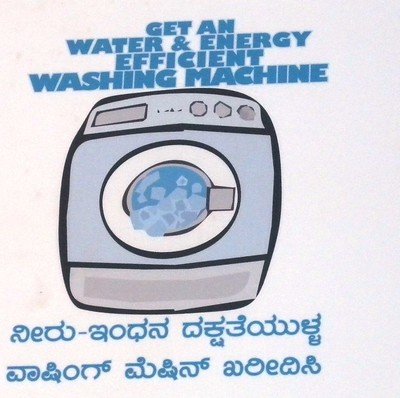
Essay On How To Save Water: Economic Impacts of Water Scarcity
Water scarcity is a growing global issue that affects not only the environment but also the economy. The shortage of water resources can have significant economic impacts on various sectors, including agriculture, industry, and tourism. In this section, we will discuss the different ways in which water scarcity can affect these sectors.
Agriculture:
The agricultural sector is one of the largest consumers of water globally. It accounts for around 70% of global freshwater withdrawals. Water scarcity can lead to lower crop yields, reduced livestock production, and higher food prices. Farmers may have to reduce their planting areas or switch to crops that require less water to cope with the shortage. This reduction in productivity can result in income losses for farmers and increased food prices for consumers.
Industry:
Industries such as manufacturing, mining, and energy production rely heavily on water for their operations. Water scarcity can lead to production disruptions and increased costs due to reduced availability or higher prices of water sources. For example, in South Africa during the 2018 drought period, some mines had to shut down temporarily due to a lack of access to sufficient water resources. The shutdowns resulted in significant revenue losses for these companies.
Tourism:
Water-based recreational activities such as swimming and boating are popular tourist attractions worldwide. However, when there is a shortage of water resources due to drought or other factors, these activities may be limited or even suspended altogether. Furthermore, natural attractions such as lakes and rivers may be damaged due to low levels of water flow caused by droughts or overuse by tourists themselves.
Indirect Economic Impacts:
In addition to direct economic impacts on specific sectors like agriculture and industry mentioned above, there are indirect economic impacts associated with water scarcity too. For instance, job losses may occur as businesses struggle with decreased productivity resulting from shortages in essential supplies like clean drinking water. Reduced economic growth can also occur if industries are forced to cut back on production due to the lack of water resources.
Mitigating Economic Impacts:
To mitigate the economic impacts of water scarcity, it is essential to implement water conservation measures and invest in water infrastructure. Governments can encourage farmers to adopt efficient irrigation methods and promote rainwater harvesting. Industries can also invest in wastewater treatment plants and explore alternative sources of water like desalination. Moreover, governments should work towards improving access to clean drinking water for all citizens.
Essay On How To Save Water: The Urgency of Conserving Water for Future Generations
Water conservation is a pressing issue that cannot be ignored any longer. As the world’s population continues to grow and demands for water increase, it is imperative to conserve this precious resource for future generations. Droughts caused by global warming have made it clear that there is not enough water to meet the high demands of human use, making water conservation a necessity. In this section, we will discuss why water conservation is crucial for the survival of future generations.
Water Conservation Is Crucial For The Survival Of Future Generations
Water is one of the most essential resources on earth. It sustains life and plays an integral role in our daily lives. However, humans consume large quantities of water every day, which has led to a significant decrease in freshwater resources over time. If we do not conserve water now, we will face serious problems in the near future as mother nature cannot sustain the human race’s current rate of consumption.
Moreover, with climate change exacerbating drought conditions worldwide, conserving water becomes even more critical than ever before. According to recent reports by NASA scientists, many regions across the globe are experiencing prolonged droughts due to rising temperatures caused by global warming. These droughts have devastating effects on agriculture and food production and can lead to widespread famine if left unchecked.
Droughts Caused By Global Warming Have Made It Clear That There Is Not Enough Water To Meet The High Demands Of Human Use
One major factor contributing to water scarcity is global warming-induced droughts that affect countries worldwide. These droughts are becoming more frequent and severe because of climate change, making it difficult for communities to rely on freshwater sources like rivers or lakes.
For instance, Cape Town in South Africa experienced an unprecedented three-year-long drought between 2015-2018 that almost resulted in Day Zero – when taps would run dry entirely – until strict measures were put into place to conserve water. In India, the city of Chennai faced a severe water crisis in 2019 due to a lack of rainfall and over-extraction of groundwater.
Water Is A Precious Resource That Must Be Conserved To Ensure That There Is Enough For Future Generations
Water conservation is essential for ensuring that there is enough freshwater available for future generations. By conserving water now, we can reduce our reliance on non-renewable sources like underground aquifers, which are being depleted at an alarming rate. We can also ensure that ecosystems dependent on freshwater resources remain healthy, preserving biodiversity and supporting life on Earth.
FAQs: Frequently Asked Questions on Essay On How To Save Water
Benefits of Saving Water
Conserving water not only helps the environment, but it also benefits you in many ways. First and foremost, it saves money on your utility bills. When you use less water, your bill will be lower. Saving water helps to preserve our natural resources and reduce pollution. By using less water, we can reduce the amount of energy needed to treat and transport water, which in turn reduces greenhouse gas emissions.
Saving Water at Home
There are many simple ways to save water at home. One of the easiest things you can do is fix any leaks in your home. A leaky faucet or toilet can waste a significant amount of water over time. Another way to conserve water is by taking shorter showers and turning off the tap while brushing your teeth or shaving. You can also install low-flow showerheads and faucets or replace old appliances with more efficient ones that use less water.
Common Misconceptions about Saving Water
One common misconception is that saving water means sacrificing comfort or cleanliness. However, this is not necessarily true. For example, taking shorter showers doesn’t mean you have to give up a relaxing shower experience – it just means being more mindful of how much time you spend in the shower. Similarly, using a dishwasher instead of washing dishes by hand can actually save more water if done efficiently.
Fixing a Leaky Faucet
Fixing a leaky faucet may seem like a small thing, but it can make a big difference in conserving water. In fact, according to the Environmental Protection Agency (EPA), fixing a single leaky faucet can save up to 3,000 litre of water per year.
Saving Water in Agriculture and Industry
In agriculture and industry, there are several ways to conserve water as well. For example, farmers can use drip irrigation systems that deliver small amounts of water directly to plant roots instead of spraying large amounts over entire fields. In industry, water can be reused and recycled in manufacturing processes to reduce the amount of freshwater needed.
Encouraging Water Conservation
Governments can encourage water conservation through various policies and programs. For example, they can provide incentives for homeowners and businesses to install low-flow fixtures or offer rebates for replacing old appliances with more efficient ones. They can also implement regulations on industries that use large amounts of water to ensure they are using it efficiently.
World Water Day: Save Water, Save Life, Save World
“Valuing Water” on World Water Day
World Water Day is celebrated annually on March 22nd to raise awareness about the importance of freshwater and advocate for sustainable management of freshwater resources. The theme for World Water Day 2021 is “Valuing Water,” highlighting the significance of water in our daily lives, ecosystems, and economies.
Water is essential for all living beings, from humans to animals and plants. It sustains life on earth and plays a crucial role in maintaining biodiversity. However, total water consumption worldwide has increased sixfold in the last century, making it essential to promote water conservation practices on a daily basis.
Save Water, Save Life
The “Save Water, Save Life” campaign emphasizes the crucial role of water in maintaining a healthy life and preserving the planet’s biodiversity. By conserving water in our daily activities, we can contribute to the global effort to save the world’s freshwater resources and protect Mother Earth.
Saving water not only benefits the environment but also saves money on utility bills and ensures a sustainable future for generations to come. Simple actions like fixing leaky faucets, taking shorter showers, and using efficient appliances like washing machines and dishwashers can make a significant difference.
Protecting Our Planet
Our planet is facing an unprecedented crisis due to climate change caused by human activities such as deforestation, pollution, and overconsumption of natural resources like fossil fuels and freshwater. We need urgent action to address these issues before it’s too late.
Water scarcity is already affecting many parts of the world, especially developing countries where people have limited access to clean drinking water. According to UNICEF reports, around 2 billion people worldwide lack access to safe drinking water at home.
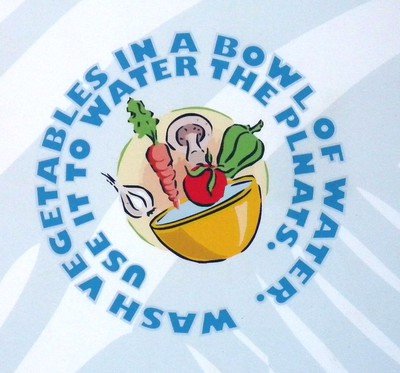
Essay On How To Save Water in 10 Lines (100 Words)
Preserve Water: The Importance of Saving Water in 10 Lines
Water is a precious resource that sustains life on Earth. However, due to human activities and climate change, water scarcity has become a global concern. To emphasize the importance of saving water, one can write an essay in just 10 lines or 100 words.
Simple Ways to Save Water
Saving water starts with small actions that can make a big difference. Turning off the tap while brushing teeth, fixing leaky faucets, and using a bucket instead of a hose to wash cars are some simple ways to save water at home. Taking shorter showers and reusing greywater for gardening can also help conserve water.
The Impact of Water Scarcity
Water scarcity not only affects humans but also agriculture and industries. In many parts of the world, farmers struggle to grow crops due to lack of access to irrigation systems or droughts caused by climate change. Industries that rely on water face production cuts or shutdowns when there is not enough water available.
Powerful Words That Encourage Action
Using powerful words like ‘preserve’, ‘conserve’, and ‘protect’ can make the essay more impactful and encourage readers to take action towards saving water. These words evoke emotions that motivate people to do their part in conserving this vital resource.
Case Studies That Demonstrate Success
There are several case studies that demonstrate how effective conservation efforts can be in saving water. For example, Singapore’s NEWater program recycles wastewater into high-grade drinking water, reducing the country’s reliance on imported freshwater sources.
Analysis Data That Shows Benefits
Analyzing data on how much water is saved through conservation efforts can help people understand the benefits of their actions. For instance, if every household in California fixed leaky faucets, it would save around 20 billion litres of water per year.
Examples That Inspire Change
Sharing examples of individuals or organizations that have successfully saved water can inspire others to follow suit. For instance, a family in India installed rainwater harvesting systems that helped them become self-sufficient in water.
Social Proofs That Encourage Participation
Sharing social proof like testimonials or success stories from people who have saved water can encourage more people to participate in conservation efforts. These proofs show that saving water is not only beneficial but also achievable.
Statistics That Highlight the Problem
Using statistics to highlight the problem of water scarcity can help people understand the severity of the issue. For example, according to the United Nations, 2.2 billion people lack access to safe drinking water.
Incentives That Encourage Action
Offering incentives like rebates for installing low-flow showerheads or toilets can encourage people to take action towards saving water. Incentives make conservation efforts more accessible and affordable for everyone.
You can use the above sections to include in your Essay On How To Save Water.
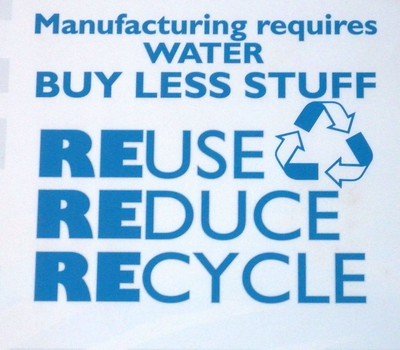
Essay on How To Save Water, Save Life: Social Awareness (500 Words)
This Essay On How To Save Water of about 500 words is a comprehensive essay. You can use other sections above also to increase the topic coverage.
Social Awareness Campaigns: Spreading the Message of Water Conservation
Water is a precious resource that sustains all forms of life on our planet. However, with increasing population and urbanization, water scarcity has become a pressing concern. To address this issue, social awareness campaigns have emerged as powerful tools to spread the message of water conservation to a wider audience. These campaigns aim to educate people about the importance of saving water and its impact on various species and classes of living beings.
Importance of Saving Water for Aquatic Species
Aquatic species are among the most vulnerable to water scarcity. With over 70% of the Earth’s surface covered in water, it might seem like there is an abundance of it. However, only 2.5% of this water is freshwater that can be used for human consumption and agricultural purposes. By saving water, we can ensure the survival of aquatic species and maintain the ecological balance of our planet.
For instance, social awareness programs highlight how excessive use of water for irrigation purposes can lead to soil salinization and degradation, which can harm aquatic species such as fish and amphibians that depend on healthy soil conditions for their survival. Moreover, by reducing industrial pollution and preventing oil spills in oceans or rivers through proper waste management practices, we can protect marine life from harmful chemicals that contaminate their habitats.
Encouraging Sustainable Practices
Social awareness programs also encourage individuals to adopt sustainable practices such as rainwater harvesting, using low-flow showerheads, fixing leaky faucets and toilets, and recycling greywater for non-potable uses such as flushing toilets or watering plants instead of discharging it into sewers or rivers.
Rainwater harvesting involves collecting rainwater from rooftops or other surfaces into storage tanks or underground reservoirs for later use in gardening or household activities that do not require potable (drinking) water. This practice not only conserves freshwater resources but also reduces stormwater runoff that can cause soil erosion and flooding.
Using low-flow showerheads and fixing leaky faucets are other effective ways to save water. Low-flow showerheads reduce the amount of water used per minute while providing a comfortable shower experience, while fixing leaks can save up to 10% on your water bill. Recycling greywater is another sustainable practice that can significantly reduce household water use by reusing wastewater from sinks, showers, and washing machines for non-potable purposes.
Collective Efforts for a Sustainable Future
Through collective efforts, we can reduce water wastage and ensure that future generations have access to clean and safe water. Social awareness campaigns play a crucial role in spreading the message of water conservation through various mediums such as television ads, billboards, social media platforms, community events, and educational programs in schools or universities.
For instance, the “WaterSense” program launched by the US Environmental Protection Agency (EPA) aims to promote the efficient use of water resources through consumer education and product labelling. The program encourages consumers to purchase products such as low-flow toilets or showerheads that meet WaterSense criteria for efficiency and performance.
Essay On How To Save Water, Save Life: Importance of Saving Water (300 Words)
This Essay On How To Save Water of about 300 words will help you score grades.
The importance of saving water cannot be overstated as it is essential for sustaining life on Earth. In this short essay, we will highlight the significance of conserving this precious resource and why it should be our collective responsibility to ensure that future generations have access to clean drinking water.
Reduce Strain on Natural Resources
Conserving water helps to reduce the strain on our natural resources. Water scarcity is a growing concern in many parts of the world, and if we don’t take action now, it will only worsen with time. By adopting simple measures such as fixing leaky taps and using water-efficient appliances, we can all contribute towards saving water and protecting our planet.
According to research conducted by the United Nations, more than two-thirds of the world’s population could face water shortages by 2025. This is a staggering statistic that highlights the urgency of taking action now. By reducing our consumption of water, we can help to ease the pressure on our natural resources and ensure that there is enough for everyone.
Ensure Access to Clean Drinking Water
Another reason why saving water is so important is that it ensures access to clean drinking water. Many people around the world do not have access to safe drinking water, which puts them at risk of diseases such as cholera and typhoid fever. By conserving water, we can help to ensure that there is enough for everyone, including those who are most vulnerable.
In addition to this, saving water also helps to protect our environment. When we waste water unnecessarily, it puts a strain on ecosystems such as rivers and lakes. This can lead to a decrease in biodiversity and harm wildlife populations.
Conclusion: Essay on How to Save Water
Water is one of the most precious resources on our planet, and it is essential for all forms of life. Unfortunately, water scarcity has become a major problem in many parts of the world due to climate change, population growth, and inefficient water management practices. However, there are several ways we can conserve water at home and in our communities.
By fixing leaks, using efficient appliances, reducing outdoor water use, and recycling and reusing water, we can save significant amounts of water every day. Moreover, we need to be aware of the impact of water scarcity on the environment and society. Depletion of aquifers and groundwater not only affects agriculture but also causes economic impacts such as rising food prices.
Therefore, it is important that we take urgent action to conserve water for future generations. We need to spread awareness about the importance of saving water through social media campaigns or community events. On World Water Day, we must pledge to save water by making small changes in our daily lives.
For more such essays keep visiting EssayGenies.com

